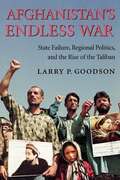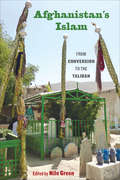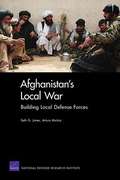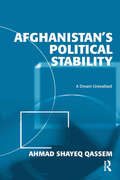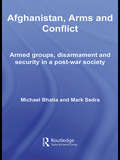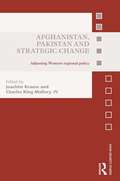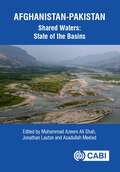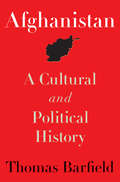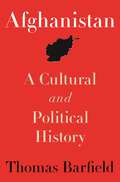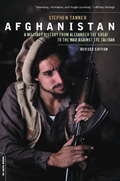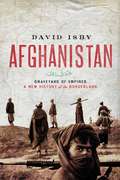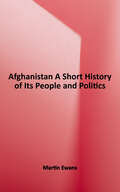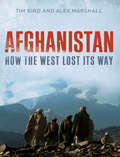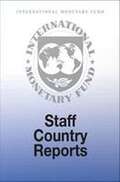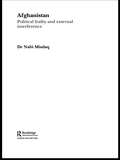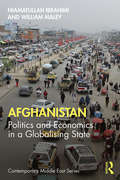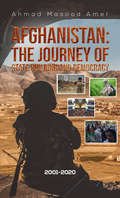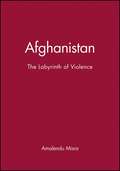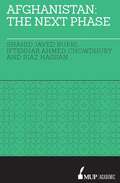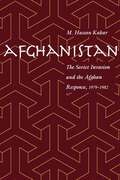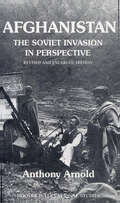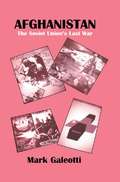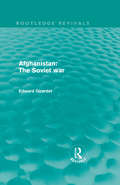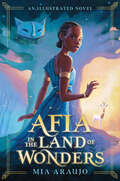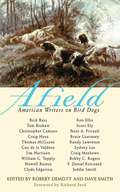- Table View
- List View
Afghanistan's Endless War: State Failure, Regional Politics, and the Rise of the Taliban
by Larry E. GoodsonState Failure, Regional Politics, and the rise of the Taliban
Afghanistan's Islam: From Conversion to the Taliban
by Nile GreenA free ebook version of this title is available through Luminos, University of California Press’s Open Access publishing program. Visit www.luminosoa.org to learn more. This book provides the first overview of the history and development of Islam in Afghanistan. Written by leading international experts, chapters cover every era from the conversion of Afghanistan through the medieval period to the present day. Based on primary sources in Arabic, Persian, Pashto, Uzbek, and Urdu, its depth of coverage is unrivalled in providing a developmental picture of Afghanistan’s Islam, including such issues as the rise of Sufism, women’s religiosity, state religious policies, and transnational Islamism. Looking beyond the unifying rhetoric of theology, the book reveals the disparate and contested forms of Afghanistan’s Islam.
Afghanistan's Local War: Building Local Defense Forces
by Seth G. Jones Arturo MunozIn Afghanistan, local communities have played a critical role in security, especially in rural areas. Afghan national security forces are important to the top-down strategy, but the Afghan government and NATO forces also need to leverage local communities to gain a complementary bottom-up strategy. This analysis discusses the viability of establishing local security forces in Afghanistan and addresses concerns about the wisdom of such policies.
Afghanistan's Political Stability: A Dream Unrealised
by Ahmad Shayeq QassemPolitical stability has been a central theme of policy for all governments and political systems in the history of modern Afghanistan. Since its inception in the mid-nineteenth century, the country experimented with a diverse succession of political systems and state ideologies matched by few other countries' political histories. In the span of less than nine decades since independence in 1919, the Afghan state was substantially restructured at least a dozen times. This volume looks at Afghanistan's historic relations with Central and South Asia, ethno-nationalism and development, Soviet occupation and transformation of relations with Pakistan, stability of the Islamic State and regional cooperation. It examines how Afghanistan's different political systems reformed and readjusted policies to make them more conducive to political stability. Yet political stability, at best, has remained a dream unrealized in Afghanistan.
Afghanistan, Arms and Conflict: Armed Groups, Disarmament and Security in a Post-War Society (Contemporary Security Studies)
by Mark Sedra Michael Vinay BhatiaThis is the first book to provide a comprehensive assessment of small arms and security-related issues in post-9/11 Afghanistan. It includes case studies which reveal the findings of in-depth field research on hitherto neglected regions of the country, and provides a distinctive balance of thematic analysis, conceptual models and empirical research. Exploring various facets of armed violence and measures to tackle it, the volume provides significant insight into broader issues such as the efficacy of international assistance, the ‘shadow’ economy, warlordism, and the Taliban-led insurgency. In an effort to deconstruct and demystify Afghanistan’s alleged ‘gun culture’, it also explores some of the prevailing obstacles and opportunities facing the country in its transition period. In so doing, the book offers valuable lessons to the state-builders of Afghanistan as well as those of other countries and regions struggling to emerge from periods of transition. This book will be of much interest to all students of Afghanistan, small arms, insurgency, Asian Studies, and conflict studies in general.
Afghanistan, Pakistan and Strategic Change: Adjusting Western regional policy (Asian Security Studies)
by Iv Joachim Krause Charles King MalloryThe region encompassing Afghanistan and Pakistan (Af/Pak region) is undergoing a fundamental strategic change. This book analyses the nature of this strategic change, in ordre to seek possible future scenarios and to examine policy options. It also undertakes a critical review of the basic elements of the Western strategic approach towards dealing with regional conflicts in all parts of the world, with special emphasis on the Af/Pak region.Dealing with the political developments i one of the most volatile regions in the world – Afghanistan and Pakistan – the volume focuses on Western strategic concerns. The withdrawal of ISAF by 2014 will change the overall political setting and the work addresses the challenges that will result for Western policymakers thereafter. It examines the cases of Afghanistan and Pakistan separately, and also looks at the broader region and tries to identify different outcomes. This book will be of much interest to students of Central and South Asian politics, strategic studies, foreign policy and security studies generally.
Afghanistan-Pakistan Shared Waters: State of the Basins
by Arif Anwar Shakeel Hayat Alias Wardak Fazilda Nabeel Hassaan Furqan Inayatullah Jan Karthikeyan Matheswaran Marie-Charlotte Buisson Muhammad Shahid Iqbal Muhammad Tousif Bhatti Muhammad Zia Hashmi Mujib Ahmad Azizi Paul Pavelic Taimoor AkhtarThere is currently no water cooperation between Afghanistan and Pakistan. Of the nine rivers that flow across the border, none possess a formal agreement or mechanism to manage shared water resources. Further, there is very little information available about the status of environment, hydrology and water resources management for these river basins that could be used as a starting point for dialogues on transboundary water coordination. This State of the Basins book co-develops an overview of the three most important river basins, in collaboration with international experts and water professionals from Afghanistan and Pakistan. It covers water resources, land resources, ecological health, environment, climate change, and the social and economic conditions for sustainable management of these precious resources. It will inform decision making within the two countries, and begin to establish benefits that can accrue from more active collaboration on these shared waters. This book: · Focuses on portions of the Indus shared by Afghanistan and Pakistan. · Features extensive engagement and co-development with Afghan and Pakistani professionals. · Is the first book on the shared waters in the Indus, developed in the context of regional realities associated with post-August 2021 Taliban takeover. The book is aimed at students and researchers in water rights and resources, and government decision makers, private sector investors, donors, intermediary organizations that work directly with farmers, researchers and students. It is a reference book for graduate students and researchers working on these basins, and on transboundary river basin management in Asia and beyond.
Afghanistan: A Cultural and Political History
by Thomas BarfieldAfghanistan traces the historic struggles and the changing nature of political authority in this volatile region of the world, from the Mughal Empire in the sixteenth century to the Taliban resurgence today. Thomas Barfield introduces readers to the bewildering diversity of tribal and ethnic groups in Afghanistan, explaining what unites them as Afghans despite the regional, cultural, and political differences that divide them. He shows how governing these peoples was relatively easy when power was concentrated in a small dynastic elite, but how this delicate political order broke down in the nineteenth and twentieth centuries when Afghanistan's rulers mobilized rural militias to expel first the British and later the Soviets. Armed insurgency proved remarkably successful against the foreign occupiers, but it also undermined the Afghan government's authority and rendered the country ever more difficult to govern as time passed. Barfield vividly describes how Afghanistan's armed factions plunged the country into a civil war, giving rise to clerical rule by the Taliban and Afghanistan's isolation from the world. He examines why the American invasion in the wake of September 11 toppled the Taliban so quickly, and how this easy victory lulled the United States into falsely believing that a viable state could be built just as easily. Afghanistan is essential reading for anyone who wants to understand how a land conquered and ruled by foreign dynasties for more than a thousand years became the "graveyard of empires" for the British and Soviets, and what the United States must do to avoid a similar fate.
Afghanistan: A Cultural and Political History, Second Edition (Princeton Shorts Ser. #9)
by Thomas BarfieldA major history of Afghanistan and its changing political cultureAfghanistan traces the historic struggles and the changing nature of political authority in this volatile region of the world, from the Mughal Empire in the sixteenth century to the Taliban resurgence today. Thomas Barfield introduces readers to the bewildering diversity of tribal and ethnic groups in Afghanistan, explaining what unites them as Afghans despite the regional, cultural, and political differences that divide them. He shows how governing these peoples was relatively easy when power was concentrated in a small dynastic elite, but how this delicate political order broke down in the nineteenth and twentieth centuries when Afghanistan's rulers mobilized rural militias to expel first the British and later the Soviets. Armed insurgency proved remarkably successful against the foreign occupiers, but it also undermined the Afghan government's authority and rendered the country ever more difficult to govern as time passed. Barfield vividly describes how Afghanistan's armed factions plunged the country into a civil war, giving rise to clerical rule by the Taliban and Afghanistan's isolation from the world. He examines why the American invasion in the wake of September 11 toppled the Taliban so quickly, and how this easy victory lulled the United States into falsely believing that a viable state could be built just as easily.Afghanistan is essential reading for anyone who wants to understand how a land conquered and ruled by foreign dynasties for more than a thousand years became the "graveyard of empires" for the British and Soviets, and why the United States failed to avoid the same fate.
Afghanistan: A Military History from Alexander the Great to the War against the Taliban
by Stephen TannerFor over 2,500 years, the forbidding territory of Afghanistan has served as a vital crossroads for armies and has witnessed history-shaping clashes between civilizations: Greek, Arab, Mongol, and Tartar, and, in more recent times, British, Russian, and American. When U. S. troops entered Afghanistan in the weeks following September 11, 2001, they overthrew the Afghan Taliban regime and sent the terrorists it harbored on the run. But America’s initial easy victory is in sharp contrast to the difficulties it faces today in confronting the Taliban resurgence. Originally published in 2002, Stephen Tanner’s Afghanistan has now been completely updated to include the crucial turn of events since America first entered the country.
Afghanistan: A New History of the Borderland (Men-at-arms Ser. #No. 178)
by David IsbyA startling history of modern Afghanistan: the story of a country caught in a vortex of terror. Veteran defense analyst and Afghanistan expert David Isby provides an insightful and meticulously researched look at the current situation in Afghanistan, her history, and what he believes must be done so that the US and NATO coalition can succeed in what has historically been known as "the graveyard of empires." Afghanistan is one of the poorest countries in the world with one of the lowest literacy rates. It is rife with divisions between ethnic groups that dwarf current schisms in Iraq, and all the groups are lead by warlords who fight over control of the drug trade as much as they do over religion. The region is still racked with these confrontations along with conflicts between rouge factions from Pakistan, with whom relations are increasingly strained. After seven years and billions of dollars in aid, efforts at nation-building in Afghanistan has produced only a puppet regime that is dependent on foreign aid for survival and has no control over a corrupt police force nor the increasingly militant criminal organizations and the deepening social and economic crisis. The task of implementing an effective US policy and cementing Afghani rule is hampered by what Isby sees as separate but overlapping conflicts between terrorism, narcotics, and regional rivalries, each requiring different strategies to resolve. Pulling these various threads together will be the challenge for the Obama administration, yet it is a challenge that can be met by continuing to foster local involvement and Afghani investment in the region. This paperback edition includes a new 2011 afterword by the author.
Afghanistan: A Short History of Its People and Politics
by Martin EwansA fascinating chronicle of a nation's turbulent history. Reaching back to the earliest times, Martin Ewans examines the historical evolution of one of today's most dangerous breeding grounds of global terrorism. After a succession of early dynasties and the emergence of an Afghan empire during the eighteenth century, the nineteenth and early twentieth century saw a fierce power struggle between Russia and Britain for supremacy in Afghanistan that was ended by the nation's proclamation of independence in 1919. A communist coup in the late 1970s overthrew the established regime and led to the invasion of Soviet troops in 1979. <p><p>Roughly a decade later, the Soviet Union withdrew, condemning Afghanistan to a civil war that tore apart the nation's last remnants of religious, ethnic, and political unity. It was into this climate that the Taliban was born. Today, war-torn and economically destitute, Afghanistan faces unique challenges as it looks toward an uncertain future. Martin Ewans carefully weighs history lessons to provide a frank look at Afghanistan's prospects and the international resonances of the nation's immense task of total political and economic reconstruction.
Afghanistan: How the West Lost its Way
by Tim Bird Alex MarshallIn October 2001, NATO forces invaded Afghanistan. Their initial aim, to topple the Taliban regime and replace it with a more democratic government aligned to Western interests, was swiftly achieved. However, stabilizing the country in the ensuing years has proven much more difficult. Despite billions of dollars in aid and military expenditure, Afghanistan remains a nation riddled with warlords, the world's major heroin producer, and the site of a seemingly endless conflict between Islamist militants and NATO forces. In this timely and important book, Tim Bird and Alex Marshall offer a panoramic view of international involvement in Afghanistan from 2001 to 2011. Tackling the subject matter as a whole, Bird and Marshall weave together analysis of military strategy, regional context, aid policy, the Afghan government, and the many disagreements between and within the Western powers involved in the intervention. Given the complicating factors of the heroin trade, unwelcoming terrain, and precarious relations with Pakistan, the authors acknowledge the ways in which Afghanistan has presented unique challenges for its foreign invaders. Ultimately, however, they argue that the international community has failed in its self-imposed effort to solve Afghanistan's problems and that there are broader lessons to be learned from their struggle, particularly in terms of counterinsurgency and the ever-complicated work of "nation-building. " The overarching feature of the intervention, they argue, has been an absence of strategic clarity and coherence.
Afghanistan: Political Frailty and External Interference (Routledge Studies in Middle Eastern History)
by Nabi MisdaqAfghan society is analyzed from a fresh standpoint in this book which discusses the country’s two and a half centuries of socio-political disquiet and outside interference. The author explores the continuous struggle between the central government and the cornerstone of the present state, the tribes. In its examination of the interchange between the centre and the periphery, the book presents a compelling review of Afghan history, the role of Islam and the contemporary theories of state, Islam, nationalism, ethnicity, and tribalism. In addition, Misdaq considers Afghanistan’s dynamism and long established custom of dealing with foreign invaders. Covering the Soviet occupation, ethnic conflicts and the US invasion, the book examines Afghan resilience and the capacity to raise an army of fighting men. Written by a well-respected authority on the region, the book highlights past mistakes which should not be repeated and recommends the way forward for this troubled nation.
Afghanistan: Politics and Economics in a Globalising State (The Contemporary Middle East)
by William Maley Niamatullah IbrahimiThis book offers an overview of the formation of the Afghan state and of the politics, economic challenges and international relations of contemporary Afghanistan. It opens with an account of some of the key features that make Afghanistan unique and proceeds to discuss how the Afghan state acquired a distinctive character as a rentier state. In addition, the authors outline a complex range of domestic and external factors that led to the breakdown of the state, and how that breakdown gave rise to a set of challenges with which Afghan political and social actors have been struggling to deal since the 2001 international intervention that overthrew the anti-modernist Taliban regime. It then presents the different types of politics that Afghanistan has witnessed over the last two decades; examines some of the most important features of the Afghan economy; and demonstrates how Afghanistan’s geopolitical location and international relations more broadly have complicated the task of promoting stability in the post-2001 period. It concludes with some reflections on the factors that are likely to shape Afghanistan’s future trajectory and notes that if there are hopes for a better future, they largely rest on the shoulders of a globalised generation of younger Afghans. This book will be of interest to students and scholars in the fields of Middle East and Central Asian studies, international relations, politics, development studies and history.
Afghanistan: The Journey of State Building and Democracy 2001-2020
by Ahmad Masood AmerThe Journey of State Building and Democracy in Afghanistan is a review of the state-building and democratic-governance process in the country which started after the US-led international intervention which toppled the Taliban regime and established a new government. This period marks a new era in the contemporary history of the country which it has never experienced before. From 1993-2001, the country was left deep in crisis and the world forgot Afghanistan after the collapse of the Soviet-backed regime in 1992 and creation of the Taliban. The nation experienced one of their darkest periods in history and the country was turned into a safe haven for international terrorism. After the 9/11, which shook the world, the country came back to international spot light. With support by the international community, reconstruction and development started and major investments were made in building state institutions and establishing democracy and freedom. With the global politics and foreign policy interest of the international allies constantly shifting, the country is again in a critical juncture. Albeit with relative success, there is fear that the country would backslide if international involvement is withdrawn. This book reviews the progress in institution building and the experience of democratic system of governance over the past two decades. It highlights critical points and lessons for the policy makers and the political elites to remedy the current situation and bring changes in as the country continues its journey.
Afghanistan: The Labyrinth of Violence
by Amalendu MisraAfghanistan has become synonymous with violence. In the past 25 years alone, the country has endured Russian invasion and occupation, civil war and a US-led military campaign, resulting in the combined loss of over 2 million lives, most of them civilian. Even now, following the overthrow of the Taliban regime, old ethnic animosities have resurfaced which seem likely to push the country into another spell of internal war. But why is it that Afghanistan has experienced such bloody conflict and slaughter? What factors have allowed the country to be exploited by external powers who have intervened to determine its politics, social structure and, consequently, its place in the world? In this fascinating new book, Amalendu Misra seeks to provide answers to these pressing questions. By analysing the nature of conflict in Afghanistan, he exposes the various geopolitical, ethnic, economic and religious variables which have contributed to the breakdown of the Afghan state, and ponders whether post-war reconstruction could lead to a more democratic and peaceful Afghanistan.
Afghanistan: The Next Phase
by Shahid Javed Burki Iftekhar Ahmed Chowdhury Riaz HassanAfghanistan: The Next Phase takes an in-depth look at the present situation in Afghanistan by placing it in the context of the country's tribal culture, history and demography. It considers its association with Pakistan, with whom it shares not only a long border, but also the Pashtuns, the largest ethnic component in its population and the rise of extremism in many parts of the Sunni world. The country faces an uncertain future as it has yet to develop the institutional structure that could transform it into an inclusive society.This book offers analysis of what the economic future holds for Afghanistan when the United States completes the withdrawal of combat troops at the end of 2014, when the flow of foreign capital that has helped the country is likely to be reduced significantly. The authors propose a formal association of ten to twelve countries to chaperone the country into the future. In the absence of such an arrangement, Afghanistan could once again become a failed state, which would have repercussions around the world.
Afghanistan: The Soviet Invasion and the Afghan Response, 1979-1982
by Mohammed KakarFew people are more respected or better positioned to speak on the Soviet invasion of Afghanistan than M. Hassan Kakar. A professor at Kabul University and scholar of Afghanistan affairs at the time of the 1978 coup d'état, Kakar vividly describes the events surrounding the Soviet invasion in 1979 and the encounter between the military superpower and the poorly armed Afghans. The events that followed are carefully detailed, with eyewitness accounts and authoritative documentation that provide an unparalleled view of this historical moment.Because of his prominence Kakar was at first treated with deference by the Marxist government and was not imprisoned, although he openly criticized the regime. When he was put behind bars the outcry from scholars all over the world possibly saved his life. In prison for five years, he continued collecting information, much of it from prominent Afghans of varying political persuasions who were themselves prisoners.Kakar brings firsthand knowledge and a historian's sensibility to his account of the invasion and its aftermath. This is both a personal document and a historical one—Kakar lived through the events he describes, and his concern for human rights rather than party politics infuses his writing. As Afghans and the rest of the world try to make sense of Afghanistan's recent past, Kakar's voice will be one of those most listened to.
Afghanistan: The Soviet Invasion in Perspective
by Anthony ArnoldOn December 27, 1979, the USSR invaded Afghanistan to save an endangered communist regime. The People's Democratic Party of Afghanistan, founded in 1965 but almost immediately riven into two hostile wings, had been induced by Moscow into unifying in 1977 in order to seize power the following year. Within weeks, however, the majority Khalqi faction had driven out the rival Parchamis, only to discover that its rigid Marxism-Leninism was no match for Islam. As the Khalqi position deteriorated, Moscow thought to regain control by forceful replacement of the PDPA leaders with Parchamis. Instead, their invasion only consolidated popular determination to eject an alien ideology. In Afghanistan's Two-Party Communism, Anthony Arnold brings these dramatic developments to life, examining Parcham and Khalq in the context of the cultural, ethnic, and class factors that distinguish their leaders and separate constituencies. He analyzes the PDPA's development through 1982 and closes with speculation on the degree of Soviet commitment to communism in Afghanistan. Written in a lively, penetrating style, yet with a wealth of detail and analysis, Arnold's book reflects the intimate feel for the country that he acquired while serving there. His multilingual source material includes hitherto classified documents, and the appendixes (biographic sketches of PDPA leaders, translations of key party documents, charts of party and state personnel changes) will provide valuable sources for other researchers.
Afghanistan: The Soviet Union's Last War
by Mark GaleottiThe Soviet Union's last war was played out against the backdrop of dramatic change within the USSR. This is the first book to study the impact of the war on Russian politics and society. Based on extensive use of Soviet official and unofficial sources, as well as work with Afghan veterans, it illustrates the way the war fed into a wide range of other processes, from the rise of grassroots political activism to the retreat from globalism in foreign policy.
Afghanistan: The Soviet War (Routledge Revivals)
by Ed GirardetFirst published in 1985, this is a book written at the height of the Soviet war in Afghanistan in the 1980s. Based on five clandestine trips into Afghanistan with the resistance, the book examines why the Soviets invaded in 1979 and what they were seeking to defend. The author analyses their deliberate policy of migratory genocide through a combination of aerial bombardments, political repression and economic blockades. The book is written by the journalist Ed Girardet, one of the world's leading authorities on the conflict, whose particular strength is his dispassionate reporting style and his firsthand proximity to the conflict. He interviewed many of the leaders of the Afghan resistance, both inside Afghanistan and in the refugee camps and he explains in depth the nature of the Afghan Islamic anti-communist struggle for independence. This is a book in the finest tradition of war reporting on the front line and the reissue is essential reading for all those interested in the history of the conflict in Afghanistan.
Afia in the Land of Wonders
by Mia AraujoIn her stunning literary debut, Mia Araujo presents a gorgeous reimagining of Alice's Adventures in Wonderland, spinning a new story that is accompanied by arresting, ethereal illustrations about twin sisters and how one must venture outside the safety of their home, into the wilderness, in order to find herself and true happiness.Afia has always felt like half of a whole. Her twin sister, Aya, is perfectly happy with fulfilling their family's expectations of them. But Afia dreams of exploring the world beyond her secluded cliffside home of Dafra. She dreams of adventure.When she meets a charming shape-shifter named Bakame, who dazzles her with promises of a magical land called Ijábù, Afia decides to take her destiny into her own hands. Although it will mean leaving everything she has ever known behind, including her beloved sister, Afia follows Bakame into the forbidden forests surrounding Dafra, from which no one has ever returned.Filled with magical sights, a charismatic Queen and her intriguing court, Ijábù is everything that Afia has ever dreamed of. But she soon discovers that nothing is as it seems, and this fantasy world demands a terrible price. With the help of a mysterious trickster, Afia must evade the Queen's hunters and the lost dreamers of Ijábù, who wish to pull her deeper into their web.Now, Afia must find the courage to survive while standing on her own--or risking losing herself completely to the wonders of Ijábù.Debut author-illustrator Mia Araujo weaves an extraordinarily luminous and beautiful story, inspired by Lewis Carroll's Alice's Adventures in Wonderland, about what it takes to find your true self, even if it means facing your deepest fears."Nothing short of an amazing adventure into a fantastic world, Mia Araujo has crafted a beautiful narrative, made all the more incredible by stunning visuals that overflow with heart and soul." -- David F. Walker, Eisner-award winning author of Bitter Root and The Second Chance of Darius Logan
Afield
by Richard Ford Robert Demott Dave SmithThis marvelous collection features stories from some of America's finest and most respected writers about every outdoorsman's favorite and most loyal hunting partner: his dog. For the first time, the stories of acclaimed writers such as Richard Ford, Tom Brokaw, Howell Raines, Rick Bass, Sydney Lea, Jim Harrison, Tom McGuane, Phil Caputo, and Chris Camuto, come together in one collection. Hunters and non-hunters alike will recognize in these poignant tales the universal aspects of owning dogs: companionship, triumph, joy, forgiveness, and loss. The hunter's outdoor spirit meets the writer's passion for detail in these honest, fresh pieces of storytelling. Here are the days spent on the trail, shotgun in hand with Fido on point-the thrills and memories that fill the hearts of bird hunters. Here is the perfect gift for dog lovers, hunters, and bibliophiles of every makeup. This is a delightful, handsome volume that captures the wild spirit of dogs and those who love them.
